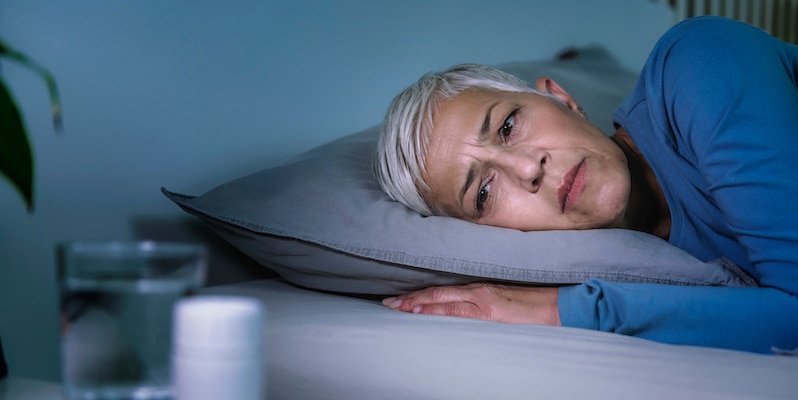by Melissa Chichester
Are you cuddled up under your favorite blanket in your own bed? Are you on your dream vacation? Maybe you love a good nap on a lounge chair at the beach or by the pool.
There’s no doubt about it – sleep just feels good. It makes us feel alive, well-rested, and ready to take on the day. And good sleep health is essential for our overall well-being.
We asked the Puritan’s Pride Manager of Nutrition & Scientific Affairs to answer frequently asked questions about sleep health – including how much sleep you need during certain stages of your life.
Did you know: More than 1 in 3 adults doesn’t get the recommended 7 or more hours of sleep per night?
The amount of sleep you need depends on your age.
The National Sleep Foundation recommends the following amounts of sleep by age:1
| Young Adult | 18-25 years old | 7-9 hours |
| Adult | 26-64 years old | 7-9 hours |
| Older Adult | 65 or more years old | 7-8 hours |
The amount of sleep you get may depend on certain lifestyle factors. For example, if you’re the parent of a young child, it might be challenging to get eight hours of sleep all at once. Some third-shift workers also find it challenging to get on a regular sleep schedule. Travel can also interrupt sleep. However, it is important to get the recommended amount each night for good health.
>>Sleep Support for Older Adults

Every so often, you may experience delayed sleep onset and sleep disruptions. They can occur from stress, medication, underlying health issues, age, diet, the use of (blue light-emitting) electronic devices before bedtime and so much more.
If you experience regular sleep interruptions, you should discuss it with your doctor first.
You may need to make certain lifestyle changes as well, such as:
>>Lifestyle Habits and Supplements that Support Sleep Health
Believe it or not, yes. Johns Hopkins Medicine notes that it isn’t necessarily the oversleeping that is an issue, but the reason you are oversleeping. If you find yourself sleeping too much or needing more sleep than usual, it is time to discuss it with your doctor.
If you’re experiencing prolonged challenges with sleep, you can undergo sleep study testing. An in-lab sleep study or “polysomnography” can be ordered by a doctor.
Polysomnography is a comprehensive test used to assess sleep concerns. Depending on your test, you may be able to conduct it at home or under observation in a sleep center.
If you are in a sleep center, they will make your sleeping conditions as comfortable as possible. You will be allowed to wear your own pajamas. However, you may have sensors placed on your body to measure what you do while you sleep.
The Mayo Clinic states that the sensors will evaluate the following:
These are not the only things that may happen during a sleep study. However, the sleep technician and your doctor will let you know in advance what to expect.
Some supplements can help with occasional sleeplessness from jet lag and other types of sleep disruptions.**
Melatonin works with your body’s natural sleep cycle to help you get to sleep faster and stay asleep longer.** Melatonin also provides blood pressure support for blood pressure already within a normal range, helping to support restful sleep and a relaxed mood before bedtime.**
And with Puritan’s Pride 10mg Melatonin Gummies, adults can take two delicious blueberry flavored gummies 30 minutes before bedtime for a more restful night’s sleep.**
Valerian has been traditionally used to help support relaxation and may help you get the rest you deserve.2,**
If you need additional support to maintain healthy circulation in the legs and get a restful night of sleep, Puritan’s Pride® Nighttime Circuleg® can help.**
No matter how old you are, good sleep hygiene is important. Every so often, most people experience some sort of sleep disruption. However, chronic sleep troubles should be resolved with a doctor’s help so you can get the rest you need to feel good.
1. https://www.sleepfoundation.org/how-sleep-works/how-much-sleep-do-we-really-need
2. Traditional use claims are based on historical or traditional practices. Valerian has a long history of use for relaxation and occasional sleeplessness dating back to traditional Greek medicine.
** These statements have not been evaluated by the Food and Drug Administration. These products are not intended to diagnose, treat, cure or prevent any disease.